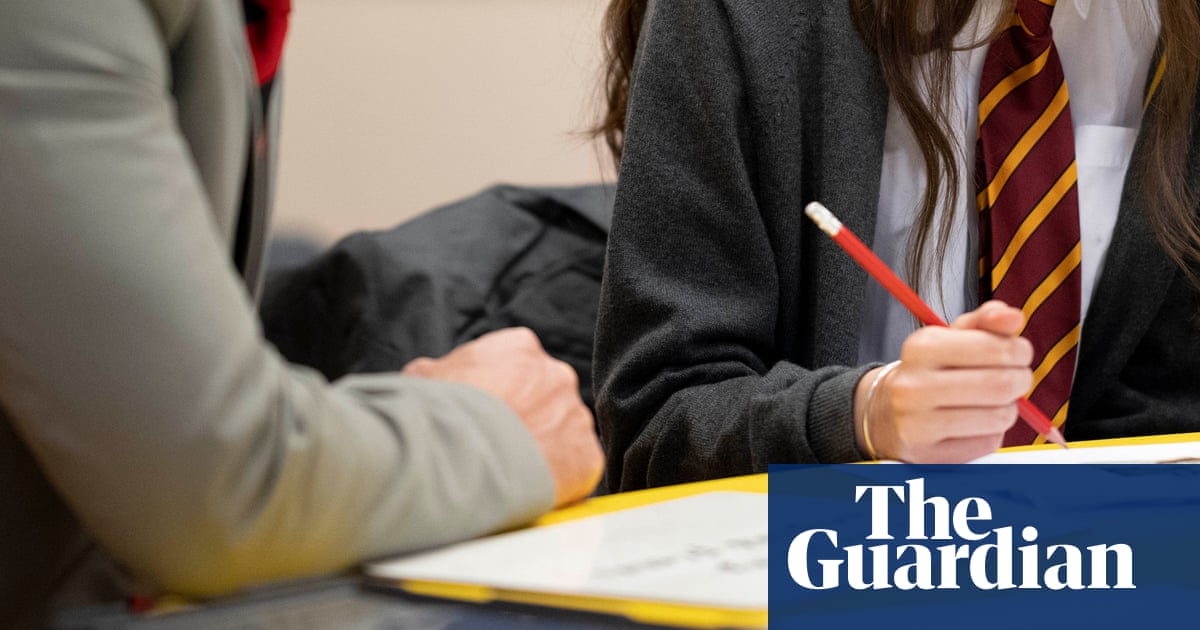
remember my last A-level exam. It was a muggy day – much like this week. Our white shirts, crumpled from several hours of stress and agitation, hung loose over our waistbands. One teacher had told me I was wasting my time when I applied to the university I eventually attended. It was the first time I’d heard the adage “pushing on a piece of string”, and each time I hear it I still recoil at the dearth of support and imagination shown to some students.
It’s a sentiment I’ve been reminded of this week, when I read about the government’s botched handling of A-level results. Following the cancellation of exams, grades will be issued according to an algorithm combining a school’s recent exam history, pupils’ past results and grades submitted by teachers. Under pressure, ministers have agreed to take account of mock exams as a fallback.
We’ve already seen the outcome of this approach in Scotland, where the predicted grades of students from better-off areas dropped by 7 percentage points, and those of students from the most deprived areas fell by 15. Essentially, students’ results will be determined by what school they go to.
Disadvantaged students have long received lower predicted A-level grades. Though better than my peers’ predictions, mine were mediocre.
Our school days were unpredictable and chaotic, and hardly ever studious. Most of the kids were from poorer London areas: Tottenham, Enfield and neighbouring boroughs. A police officer guarded the gates every day in anticipation of gang fights. Teachers would straighten their ties on the mornings of Ofsted inspections, fearful that one wrong step would kick us out of special measures and firmly into closure.
“The brightest disadvantaged students, given their grades, are under-represented at leading universities. The admission process itself may be responsible for this,” Sir Peter Lampl, chairman of the Sutton Trust, has said. “Having actual grades on application empowers the student.”
As it turned out, my predicted grades were significantly lower than my actual results, which were the best in my school. That affected the course I chose to study, the universities I went to as an undergraduate and then postgraduate, and my future employment prospects. So when Clare Marchant, the chief executive of Ucas, said blandly that sixth formers issued with A-level results should “move on” and take university places that are available, she overlooked a brutal truth – that education and social mobility are inextricably linked.
School isn’t just about memorising Shakespeare sonnets and the periodic table. For many of us, it’s about using talent, creativity and graft to ensure you don’t end up in the same place you started. To have the opportunities your parents never had and to end up in the same room as the people you once read about.
To have your fate determined by factors outside of your control, such as the unconscious bias of teachers and your school’s league table performance, is not only unfair – it’s also deeply damaging.
With each year, memories of my school years grow more faint. But I know one thing. The pupils who opted out weren’t stupid. They were aware of the amount of soul they would need to pour into the endless struggle. Entire phases of life, fighting tooth and nail for the opportunity and recognition easily afforded to those less able, but more confident or connected than them.
If it wasn’t for the support of my parents, or lone teachers who went out of their way to help me – the biology teacher who told me sternly to apply to university, the maths teacher who advised me to take any reference to popular crime fiction out of my personal statement – I’d be one of them.
Once, our class made a substitute English teacher cry. She couldn’t hear her own voice over our screeching and pen throwing. There were a few short minutes of regretful silence. She stopped me as I was leaving and told me I was better than this, which stunned me into submission. I felt so reflective that I returned after school to work with her on my coursework. All it took was a bit of faith.
The government’s decision this week on A-level grades will entrench disadvantage, just as the coronavirus crisis is deepening inequality across the board. The mock exams afterthought only deepens the problem. So often, the culture of your school and background shapes your attitude to studying. I didn’t know anyone who took mock exams seriously. As a kid, my dad called me Manchester United because I always waited until the 90th minute to score. It’s probably why I became a journalist: we live by the adrenaline of deadlines.
There were other solutions that could have given students like me and my classmates more of a stake in the game. For this year’s A-level students, the opportunity won’t come again. But for the future, ditching predictive grades once and for all is essential to give more of us a fighting chance.
• Nadia Khomami is an assistant news editor at the Guardian












